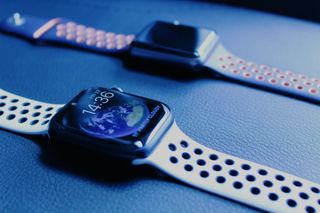University of Michigan reveals early results of 'unprecedented' Apple Watch study

What you need to know
- The University of Michigan has revealed the early results of its Apple Watch survey.
- More than 6,700 patients wore a watch for over a year.
- Participants submitted a range of measurements.
The University of Michigan has released the early results of its Apple Watch health study.
This week Michigan Health Lab announced:
Early results from a landmark, three-year observational study called MIPACT, short for Michigan Predictive Activity & Clinical Trajectories, provide insight into the baseline health status of a representative group of thousands of people, as reported in a paper published in The Lancet Digital Health.
Jessica Golbus, M.D., of University of Michigan Health's Division of Cardiovascular Medicine, said it was important to understand all of the baseline activity levels of patients before the study continued, and hailed the diversity of the group.
Patients reportedly wore their Apple Watches 90 percent of the study days and for an average of 15.5 hours a day, taking heart rate measurements and blood pressure using an Omron cuff. From the early findings:
Participants 65 and older had significantly lower resting and walking heart rates, and women had resting heart rates on average 3 beats per minute higher than men. When stratified by self-declared race, Black participants had the highest heart rates and white participants the lowest. Activity levels also varied by race and ethnicity and by the presence of certain clinical conditions. Together, these differences demonstrate that patient-specific context is an important consideration when clinicians interpret wearable and home blood pressure data.
The report now begins a three-year follow-up period in which doctors will seek to contextualize the data signals from Apple Watch with information from electronic medical records and survey data. The study also provides some unique insight into some effects of the global pandemic because it holds data from before and after its onset, so could reveal some of the impact not only of the illness itself but also the lifestyle impact.
Apple offers various health sensors including a heart rate monitor and blood oxygen monitoring in its Apple Watch, most recently with Apple Watch Series 7. This and previous models are already available at a discount thanks to the best Black Friday Apple Watch deals.
Master your iPhone in minutes
iMore offers spot-on advice and guidance from our team of experts, with decades of Apple device experience to lean on. Learn more with iMore!

Stephen Warwick has written about Apple for five years at iMore and previously elsewhere. He covers all of iMore's latest breaking news regarding all of Apple's products and services, both hardware and software. Stephen has interviewed industry experts in a range of fields including finance, litigation, security, and more. He also specializes in curating and reviewing audio hardware and has experience beyond journalism in sound engineering, production, and design. Before becoming a writer Stephen studied Ancient History at University and also worked at Apple for more than two years. Stephen is also a host on the iMore show, a weekly podcast recorded live that discusses the latest in breaking Apple news, as well as featuring fun trivia about all things Apple. Follow him on Twitter @stephenwarwick9
